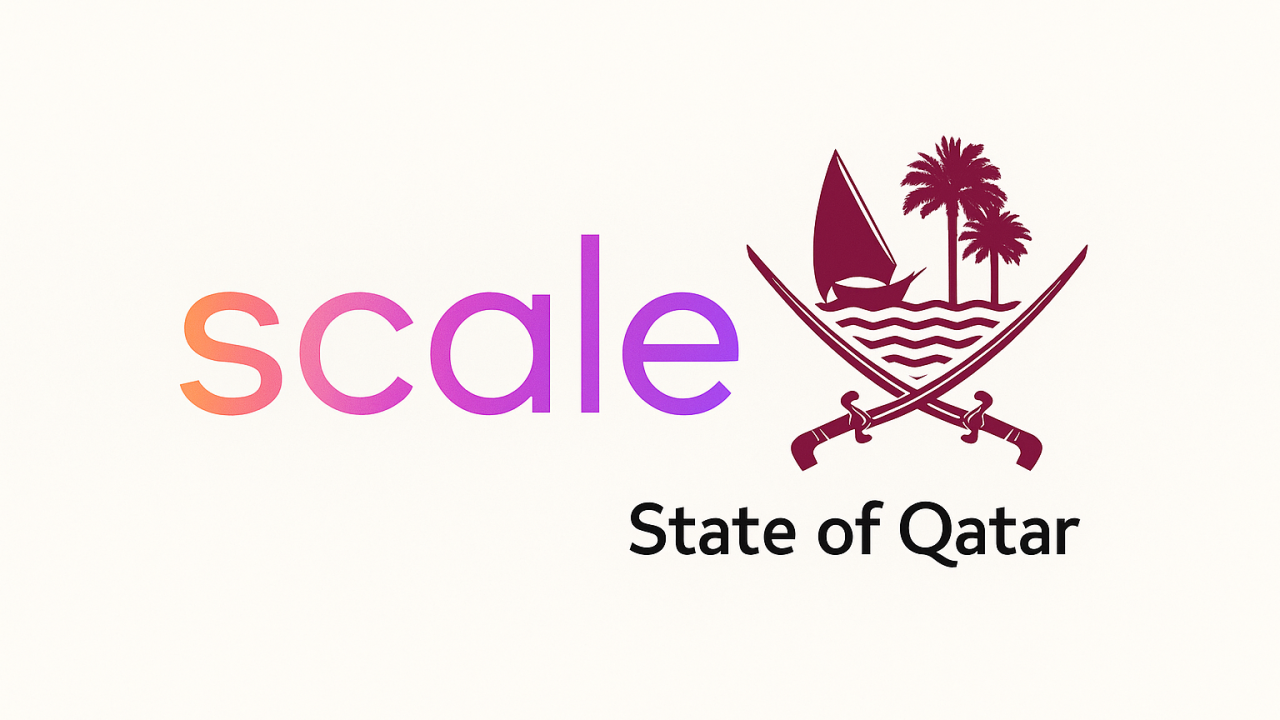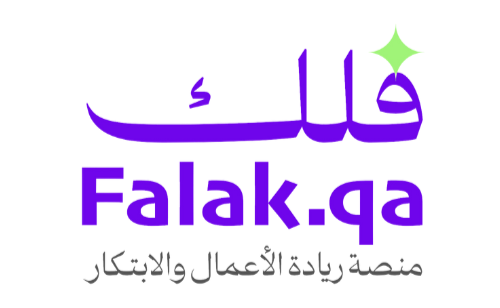Mazen Al-Adhami
Qatar - In an era defined by data and intelligence, governments worldwide are pursuing digital transformation strategies that go far beyond simple automation. They are seeking meaningful, AI-powered change that redefines how the public sector delivers services, governs, and evolves. Qatar has taken a significant step in this direction by forging a landmark partnership with Scale AI — a globally recognised leader in artificial intelligence infrastructure and data solutions.
This long-term strategic agreement represents more than a technological upgrade; it marks a foundational shift in how Qatar’s government envisions its future. Over the next five years, Scale AI will work closely with Qatar’s Ministry of Communications and Information Technology (MCIT) to develop and deploy over 50 AI tools across the public sector. But what does this mean for the country, its people, and its place within the broader Gulf region?
Who is Scale AI?
Scale AI is a U.S.-based technology company that provides advanced data infrastructure for artificial intelligence. Founded in 2016, the company rapidly emerged as a cornerstone of the modern AI ecosystem by supplying high-quality, labelled datasets to train and validate AI models. Its clientele spans both the commercial and public sectors, including some of the world’s leading technology firms and government agencies.
Beyond data labelling, Scale AI has expanded into AI model evaluation, deployment frameworks, and full-scale infrastructure design for AI-driven operations. Its core strength lies in managing massive datasets with accuracy, speed, and strategic oversight — qualities that are critical when deploying AI systems within high-stakes domains such as national governance.
Why Qatar Needs Scale AI?
Qatar has outlined ambitious goals for national transformation under its Vision 2030 and the recently launched National Development Strategy (NDS3). Central to this vision is a strong commitment to digitalisation, data-driven governance, and economic diversification through innovation. AI is not just a tool in this journey — it is a foundational enabler.
However, effective AI deployment requires more than just algorithms. It demands structured, high-quality data, operational expertise, and a deep understanding of both technical and regulatory landscapes. This is where Scale AI’s capabilities align perfectly with Qatar’s needs.
By bringing in an external powerhouse like Scale AI, Qatar accelerates its timeline for AI integration while ensuring that its government services benefit from global best practices. Moreover, this partnership helps mitigate early-stage risks that often derail ambitious digital programs by embedding experienced execution and strategic design into the initiative from day one.
Scope and Duration of the Deal
The partnership between the Government of Qatar and Scale AI is structured as a five-year program, with clearly defined deliverables and transformation milestones. Its scope is broad, extending across ministries, regulatory bodies, and state-owned enterprises.
Key components of the agreement include:
- Development of more than 50 tailored AI applications across government agencies
- Initial implementation of four pilot projects, which will serve as proofs of concept and deployment models
- Comprehensive training programs for civil servants, technologists, and young professionals in the AI domain
- Design of data governance frameworks and AI evaluation methodologies specific to the public sector
- Ongoing technical support to embed AI tools in daily operational workflows
Rather than treating AI as a siloed IT function, the partnership aims to integrate AI capabilities into the fundamental structure of public governance.
Expectations and Desired Outcomes
The goals of this initiative are both tactical and strategic in nature. On the operational side, the government seeks measurable improvements in efficiency, service quality, and the speed of decision-making. On the national level, Qatar aims to emerge as a regional leader in public-sector AI deployment, showcasing a model that strikes a balance between innovation, ethics, and scalability.
Specific desired outcomes include:
-
Faster, more responsive public services: From permit issuance to legal processing and licensing, AI tools will automate repetitive tasks, reducing turnaround time.
-
Proactive governance: Predictive analytics will allow authorities to anticipate demand, address issues before they escalate, and design data-driven policies.
-
Informed decision-making: AI-enabled dashboards and real-time analytics will empower leaders to make faster, evidence-based decisions.
-
Workforce transformation: Thousands of public servants and students will undergo AI literacy programs, upskilling the future talent pool.
-
Innovation ecosystem growth: The deal is expected to catalyse demand for local startups, tech service providers, and university partnerships focused on AI applications.
In essence, the government is not merely adopting AI—it is positioning AI as a co-pilot for every aspect of governance.
Key Sectors to Benefit
While the AI tools to be developed under this partnership span various functions, several high-priority sectors are likely to witness transformative change:
-
Government and Civil Services
AI will streamline internal workflows, automate documentation, and enhance public engagement systems. Government contact centres, digital forms, and citizen feedback loops will become more intelligent and efficient.
-
Healthcare
Applications will include intelligent patient scheduling, automated diagnostics support, and administrative tools to reduce bureaucracy. This will lead to improved resource allocation and a better patient experience.
-
Education
The education sector will benefit from AI tutors, personalised learning pathways, and administrative tools that enable educators to track and support student progress more effectively.
-
Urban Development and Transportation
Innovative city technologies, traffic optimisation, and infrastructure forecasting will be enhanced by AI models that can adapt to real-time data and long-term trends.
-
Tourism and Culture
AI-driven personalisation engines will enhance tourist services, including multilingual guides, intelligent booking tools, and customised travel itineraries tailored to visitor preferences.
-
Legal and Regulatory Affairs
Document summarisation, case triage systems, and regulatory compliance monitoring will increase the speed and quality of judicial and legal workflows.
Local Market Impact and Subcontracting Opportunities
A critical component of this partnership lies in its multiplier effect on the domestic AI ecosystem. While Scale AI brings the global experience and foundational infrastructure, much of the downstream development and customisation will require local expertise and execution partners.
This opens the door for:
-
Qatari AI firms to serve as implementation and customisation partners
-
Technology startups to build vertical solutions on top of the government’s AI backbone
-
Academic institutions to contribute research, evaluation methodologies, and training resources
-
Local data providers to support domain-specific annotation and enrichment efforts
Furthermore, the partnership includes a robust knowledge transfer mechanism designed to ensure that capabilities remain in-country. This is not a “plug-and-play” model, but rather a co-development approach that embeds AI literacy, fosters entrepreneurship, and creates jobs across the public and private sectors.
Positioning Qatar in the GCC and Beyond
From a geopolitical perspective, this partnership positions Qatar as a first-mover in AI-powered governance. While neighbouring Gulf countries have also made significant strides in artificial intelligence, Qatar’s approach is unique in its emphasis on a structured rollout, long-term workforce development, and ethical implementation.
This model, if successful, will set a new benchmark for public-sector AI in the region. It is expected that by the end of the five years:
- Qatar will have a mature AI ecosystem rooted in both local and international talent
- Dozens of government workflows will be fully or semi-automated using trusted AI tools
- A new generation of AI entrepreneurs and professionals will be active in the economy
- Qatar will export its AI governance models and public-sector tools to other countries
In a region where economic diversification and digital transformation are central to national agendas, this partnership provides Qatar with a unique edge in defining what responsible and effective AI governance can look like.
Conclusion: A Blueprint for AI-Driven Public Governance
The strategic partnership between Scale AI and the Government of Qatar is more than a technology procurement deal. It is a signal of intent, a blueprint for transformation, and a call to action for the broader ecosystem.
By embedding AI at the heart of governance, Qatar is not only improving its public services but also reshaping its societal fabric, economic potential, and regional standing. The next five years will serve as a litmus test — not just for the success of the tools being deployed, but for the country’s ability to cultivate a self-sustaining, human-centred AI ecosystem.
As we watch this transformation unfold, one thing becomes clear: Qatar is not preparing for the future. It is building it.





Share:
New National IP Initiative to Empower Qatari SMEs
Building Tomorrow: Qatar’s Vision for a Digitally Empowered Workforce